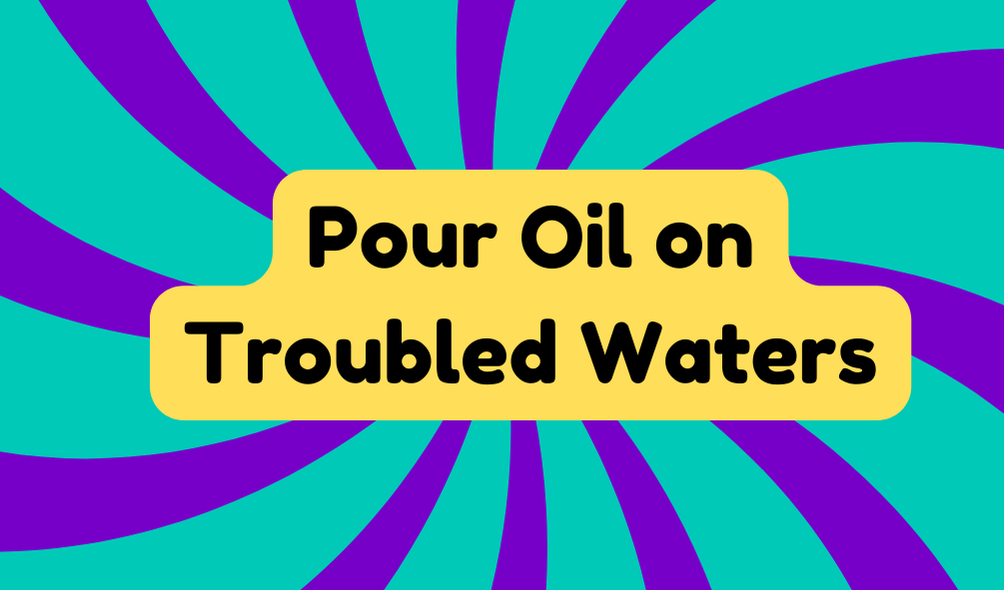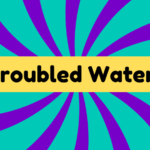When you "pour oil on troubled waters," it means you're trying to calm a tense situation. This phrase has historical roots, with references dating back to Pliny the Elder. It's about easing conflicts and smoothing over disputes. For instance, a manager might offer thoughtful suggestions during a heated meeting, easing tensions among team members. While this approach can be effective, it's vital to understand that not all conflicts can be resolved with simple dialogue. Real resolution often demands deeper engagement. If you think there's more to this topic, you're correct—there's plenty of insight to uncover.
Synonyms
When you think about synonyms for "pour oil on troubled waters," several phrases come to mind that capture the essence of soothing a conflict. Understanding these alternatives can enhance your emotional intelligence and improve conflict resolution skills. Here's a list of phrases that may resonate:
- Calm the storm – Halting the chaos and restoring peace.
- Smooth tensions – Easing discomfort among parties involved.
- Mend fences – Rebuilding relationships and trust.
- Bring harmony – Achieving balance in a fractious environment.
Each of these expressions emphasizes the importance of addressing disagreements. However, relying solely on these phrases can oversimplify the complexities of human emotions. True conflict resolution requires active participation and a nuanced understanding of the underlying issues at play.
Example of Sentences
Understanding how to express the idea of "pouring oil on troubled waters" can be enhanced by examining practical examples. Here are some sentences that illustrate this metaphorical expression in the context of conflict resolution:
- "Last week, the office was in uproar until she stepped in and poured oil on troubled waters."
- "Despite their differences, he consistently tried to pour oil on troubled waters during family disagreements."
- "It's exhausting to pour oil on troubled waters when everyone around you is fueled by emotion."
- "When tensions rose in the meeting, the manager's calm suggestions really poured oil on troubled waters."
These examples reflect how language can bridge gaps in understanding and foster peace, but they also remind us that not every attempt at resolution will yield success.
Origin
Tracing the origin of the phrase "pour oil on troubled waters" reveals a rich history rooted in observation and metaphor. Historical significance stems from ancient practices where people noted how oil calmed turbulent water. Roman scholar Pliny the Elder documented this in 77 AD, highlighting oil's soothing nature. Innovators like Benjamin Franklin experimented with oil's calming effects on water, making the concept practical in conflict resolution.
| Source | Year | Key Insight |
|---|---|---|
| Pliny the Elder | 77 AD | Oil's calming effect on water |
| Benjamin Franklin | 1773 | Experimented with oil on water |
| Maritime Observations | Various | Greasy water smooths ship wakes |
The phrase's literary usage reflects ongoing dialogues around conflict resolution, deeply interwoven into cultural discussions today.
Collocations
In discussions about resolving conflicts, certain collocations naturally emerge alongside the phrase "pour oil on troubled waters." Commonly used terms like "calm tensions," "resolve disputes," and "ease conflicts" complement the expression, highlighting the active role one plays in diffusing challenging situations. By utilizing effective communication strategies, you can foster an environment for conflict resolution. Here are a few key collocations to take into account:
- Calm tensions – reducing emotional stress.
- Resolve disputes – addressing disagreements constructively.
- Ease conflicts – smoothing over difficult interactions.
- Facilitate dialogue – encouraging open conversation.
While these terms sound promising, remember that merely using them doesn't guarantee success in conflict resolution. They require sincere intention and practice to become truly effective.
How to Use in Everyday Language
When maneuvering daily conversations, you can seamlessly incorporate the phrase "pour oil on troubled waters" to suggest efforts aimed at calming a heated situation. By using this idiom, you're not just expressing a desire for peace, but also subtly encouraging the use of conflict resolution strategies. It's important to recognize the emotional intelligence techniques that can accompany this phrase, allowing you to navigate tricky discussions with finesse. For instance, during a disagreement, saying something like, "Let's pour oil on troubled waters here" signals your intention to ease tensions. You'll encourage dialogue, not a standoff. Remember, it's all about fostering understanding, showing empathy, and finding common ground, which can be vital in achieving harmony in any discord.
Why Is It Still Relevant Today?
Conflict is a part of daily life, making the idiom "pour oil on troubled waters" as relevant today as ever. In our fast-paced world, understanding the importance in relationships is critical. Whether you're steering through workplace dynamics or family issues, effective methods for conflict resolution can transform chaos into collaboration. You might think that simply talking things out can solve every problem, but it often requires more strategy. Recognizing when to intervene and how to engage with empathy is fundamental. It's not about avoiding conflict but managing it wisely. As we aim for innovation, incorporating these age-old principles can foster healthier dialogues and stronger connections. Ultimately, pouring oil on troubled waters remains an essential skill in nurturing our relationships.







